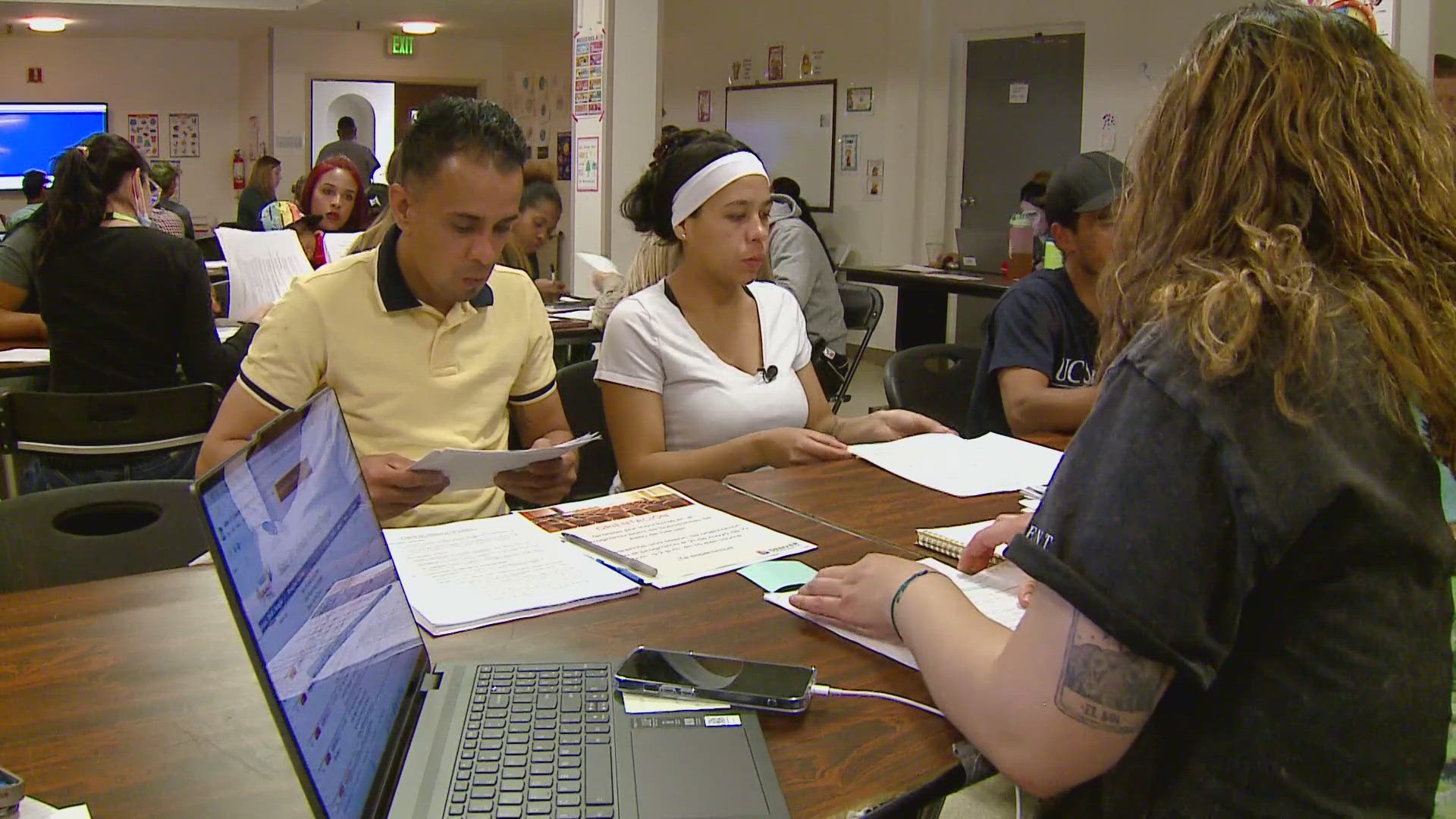DENVER, Colorado — Tuesday marked the City of Denver's fourth day of enrollment for the Denver Asylum Seekers Program. The program was announced by Mayor Mike Johnston in early April. Since then, the city has moved to enroll more than 500 people, both individuals and families eligible for the program.
The Johnston administration made all families who were in shelter on April 10, the day of the announcement, eligible for the program. Other eligible people include some who were in transitional housing or were already in their own housing. Around 800 total people are eligible for the program.
On Wednesday, more than 100 people enrolled in the program. That number was in addition to the 430 families who enrolled over the first three days. Not one person who attended in-person enrollment presentation has turned down an opportunity to have a place in the city's pilot program.
"The folks who are here today are enrolling in the Denver Asylum Seeker Program, which is the new program that the city created to support the folks who are seeking asylum and integrating into our community to assist them for the duration of the time that they need to wait until they are eligible for work permits," said Sarah Plastino, Denver Newcomer Program director.
The program offers resources for families like help with their asylum applications, enrollment in ESL classes, job support, work skills training and housing.
Many families consider the most important piece to be the asylum application, because they can get a work permit six months after its submission. The permit is then active until a decision can be made with their case in immigration court. The process could take years, and it gives people an opportunity to work legally while their cases are pending.
"The truth is that we want to be legal, to be well and have a job, and to be able to have help for our family," said Jackson, who came to the U.S. with his wife Nicol, their son, and have a second child on the way.
Since arriving in December, Jackson hasn't been able to find work. He hopes this program will be able to bridge the gap so he can provide more for his family.
"I have a lot of emotion in my heart because I feel like this is the next step to be legal, to have some real benefits," Jackson said.
After enrollment, the next step for his family is to find housing through the city's partner service providers and organizations. ViVe Wellness, Papagayo and the Village Exchange Center are helping to place people in housing. They also work on case management to ensure the individuals and families can complete the program.
The city's program is designed around the wait time to receive work permits through the asylum avenue.
Other migrants who arrived earlier in 2022 or 2023 are, in some cases, eligible for Temporary Protected Status (TPS) or work permits through U.S. Customs and Border Protection's mobile app, CBP One.
The only option for many migrants who arrived later is completing an asylum application and then going through the process of waiting to get a work permit. Until the permit arrives, migrants are not permitted to work.
"So, part of the Asylum Seeker Program is a work-skills training program where folks learn English," Plastino said. "They get job certification, and they are matched with a really good job at the end. So, it’s basically like an up-skills program, where folks at the end can get a job that pays better than a job they would be able to get at the beginning."
Plastino says the six-month lapse will be used to build up their skills during the time applicants are unable to work.
Plastino says she has personally heard several stories from families that indicate many migrants will have a high chance of success in receiving asylum. Due to the arduous process and high bar, it is also known that not all of the families who apply will end up being granted asylum in the end.
"It’s always a risk," Plastino said. "Immigration court proceedings are adversarial, which means that you are going up an ice attorney and it can be really hard to win asylum. So, I don’t expect that everybody will win their case and that’s just the nature of asylum proceedings."
The city says that it will continue expanding the program and enrollment as they continue building the program from today's current stages. Critics say while the program offers intensive help to those who are eligible, it offers less help and shorter shelter stays for those who arrived after the city piloted and announced the program.
SUGGESTED VIDEOS: Next with Kyle Clark

